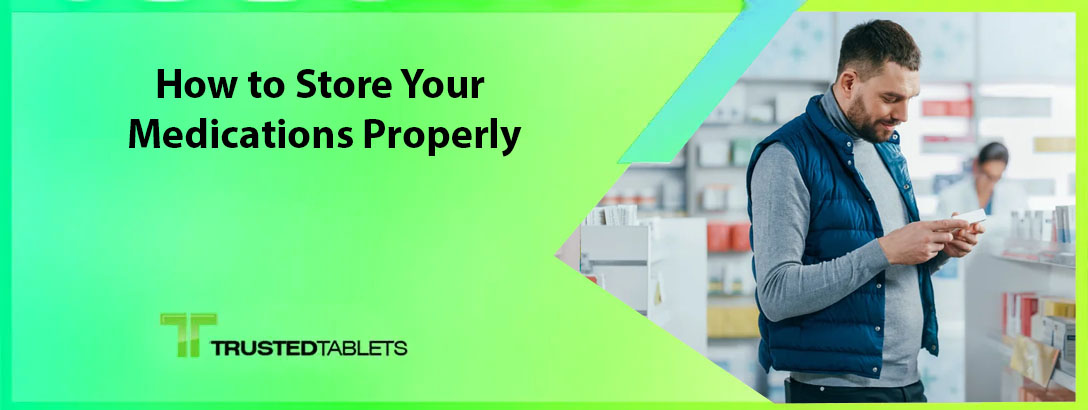Proper storage of medications is crucial for maintaining their effectiveness and ensuring safety. Incorrect storage can lead to reduced potency, contamination, or even harmful side effects. Here are the best practices for storing your medications properly.
Keep Medications in Their Original Containers
Medications should be stored in their original containers. These containers are designed to protect the medication from light, moisture, and contamination. The label on the original container also provides important information such as dosage instructions, expiration dates, and warnings.
Store at the Right Temperature
Most medications should be stored at room temperature, between 68°F and 77°F (20°C to 25°C). Avoid storing medications in places that are exposed to extreme temperatures, such as near a stove, in a car, or on a windowsill. Some medications may need to be refrigerated; always check the label or consult your pharmacist if you’re unsure.
Avoid Humidity
Humidity can damage many medications, especially pills and capsules. Bathrooms are often humid due to showers and baths, so it’s best to store medications in a dry place, such as a bedroom or a hallway closet. If you must keep medications in the bathroom, consider using a medicine cabinet that is not directly exposed to steam.
Keep Out of Reach of Children and Pets
Store medications in a secure location out of reach of children and pets to prevent accidental ingestion. Consider using a locked cabinet or a high shelf. Child-resistant caps are also helpful, but they are not foolproof, so additional precautions should be taken.
Avoid Light Exposure
Some medications are sensitive to light and can degrade when exposed to direct sunlight. Store these medications in a dark place or in containers that are not transparent. The original packaging often provides adequate protection from light.
Separate Different Medications
To prevent confusion and contamination, store different medications separately. Using a pill organizer can be helpful, but only if you ensure that it is kept in a proper storage environment. Be mindful of potential interactions and keep medications in their original containers when possible.
Check Expiration Dates Regularly
Medications can lose their effectiveness or become harmful past their expiration date. Regularly check the expiration dates on your medications and safely dispose of any that are expired. Do not flush medications down the toilet; instead, follow local guidelines for safe disposal.
Travel with Care
When traveling, keep medications in their original containers and bring a copy of your prescription. Store them in your carry-on luggage to avoid exposure to extreme temperatures in the cargo hold. If you need to keep medications cold, use a portable cooler with ice packs, but avoid direct contact with the ice.
Be Mindful of Liquid Medications
Liquid medications should be tightly sealed to prevent spills and contamination. Store them upright and in a secure location to avoid accidental tipping. Pay attention to storage instructions, as some liquids may need to be refrigerated.
Consult Your Pharmacist
If you have any questions about how to store a specific medication, don’t hesitate to consult your pharmacist. They can provide detailed storage instructions and answer any concerns you may have about your medications.
Conclusion
Proper storage of medications is essential for maintaining their effectiveness and safety. By keeping medications in their original containers, storing them at the right temperature, avoiding humidity and light exposure, and following other best practices, you can ensure that your medications remain safe and effective.


